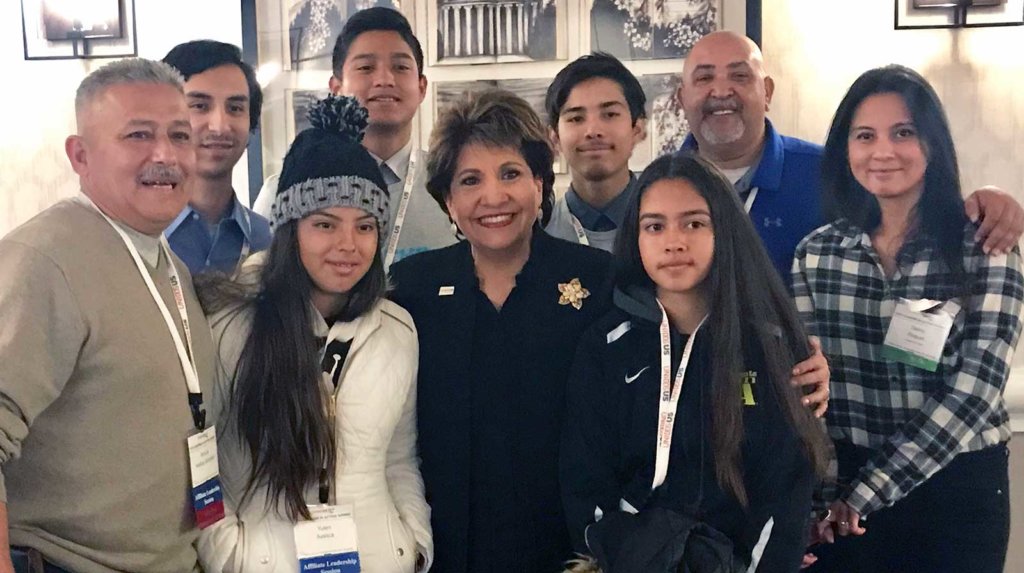This Week in Immigration Reform — Week Ending March 17
 Week Ending March 17
Week Ending March 17
This week in immigration: NCLR responds to the President’s funding request to Congress; joins calls for congressional hearings on the immigration executive orders; the president’s Muslim and refugee ban is blocked again; and a new poll continues to show support for legal status not deportations.
NCLR tells Congress to reject funding requests for mass deportation: This week, the administration sent a spending request to Congress asking for $3 billion to expand its deportation force, immigrant detention camps, and for a border wall along the southern border. The administration also sent over its first budget for Fiscal Year 2018 which requested $4.5 billion dollars to implement its executive orders on immigration. “Rather than asking Congress to spend our taxpayer dollars on programs that would make our educational system more equitable, health care affordable and accessible, and the dream of owning a business or a home attainable—the White House is asking Congress for a check to push their agenda of intolerance,” said NCLR President and CEO Janet Murguía. To see some of the ways that $3 billion could be better spent, follow @NCLR on twitter or check out this post on the ways the $3 billion could be spent on education, childcare, the environment, job creation, and national service. To tell your senators to reject this request for new funding that will fund more ICE and CBP agents, new immigrant detention centers, and a border wall visit: nclr.us/nowall.
NCLR joins 130 organizations in asking for hearings on the administration’s immigration executive orders: NCLR joined the ACLU and 128 other organizations in asking for the Judiciary Committees to hold hearings on the administration’s immigration executive orders. The letters ask for Congress to immediately hold hearings to investigate the implementation of the executive orders on border security, interior enforcement, and the refugee and Muslim ban.
The Senate Judiciary Committee and House Judiciary Committee are responsible for oversight of the Justice Department and the Department of Homeland Security, with a focus on issues implicating the Constitution.
Nationwide temporary restraining order blocks Muslim and refugee ban again: This week, a federal judge in Hawaii issued a temporary restraining order on President Trump’s executive order, just hours before it was scheduled to go into effect. President Trump’s executive order signed on March 6 aims to ban individuals from six Muslim-majority countries for 90 days, halt all refugee admissions for 120 days, and drastically reduce the number of refugees who may enter the U.S. this year from 110,000 to 50,000. Despite slight adjustments to the new order, the policy—if enacted—would keep families apart and prevent thousands of refugees from finding safety in the United States.
NCLR stands united against hate: NCLR is joining 11 other prominent national organizations to address the disturbing spike in hate incidents across the country. The initiative, Communities Against Hate, is led by The Leadership Conference Education Fund and the Lawyers’ Committee for Civil Rights Under Law. A major part of the initiative is launching a database to bring visibility to hate incidents, and helping victims and organizations get access to legal resources and social services through a newly established hotline: (844) 9 NOHATE, or (844) 966-4283. You can also report incidents online at: nclr.us/CommunitiesAgainstHate
New poll shows Trump mass deportation strategy is unpopular: A poll by CNN released this week demonstrates that Americans disagree with President Trump’s deportation force with nearly two thirds of Americans saying they would like to see a path to legal status for undocumented immigrants rather than deportations. For additional highlights from the poll and other recent polls with similar findings, see this compilation from America’s Voice.
You can find an immigration legal service provider near them by going to immigrationlawhelp.org – a directory of nonprofit immigration legal service providers.
Know Your Rights information can be found here.


